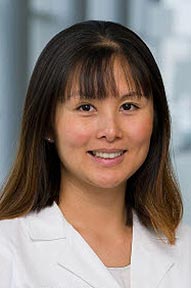
11 Apr How Many Cancer Patients Use Complementary or Alternative Medicine Treatments?
MedicalResearch.com Interview with:
Nina Niu Sanford, M.D.
Assistant Professor
UT Southwestern Department of Radiation Oncology
Dallas TX 75390
MedicalResearch.com: What is the background for this study? What are the main findings?
Response: There has been increasing interest in use of complementary and alternative medicine in the oncology population – both in terms of its potential efficacy and harms.
The main finding of this study is that approximately 1/3 of cancer patients and survivors self-reported using complementary or alternative medicine over the past year, the most common being herbal supplements.
Of these patients, approximately 1/3 did not disclose to their physicians that they were doing so.
MedicalResearch.com: What should readers take away from your report?
Response: Use of complementary and alternative medicine among cancer patients and survivors is relatively high. The most commonly cited reason for not disclosing use to physicians was because physicians didn’t ask or patients didn’t think their physicians needed to know – the latter is simply not true. We want to know all supplements and therapies our patients are engaging in, so that we can attempt to help safely integrate them with conventional cancer care.
MedicalResearch.com: What recommendations do you have for future research as a result of this work?
Response: Our study raises several additional questions that should be addressed with future research. Are these patients who use complementary and alternative medicine foregoing conventional cancer care and if so, how do their cancer outcomes compare?
What is the cost of these therapies? What is the quality of life of patients who use complementary and alternative medicines? Interventional studies on ways to increase rates of disclosure of use would also be important, as would rigorous studies on interactions between complementary and alternative medicines and conventional cancer treatment (i.e. chemotherapy, surgery and radiation).
Citation:
Sanford NN, Sher DJ, Ahn C, Aizer AA, Mahal BA. Prevalence and Nondisclosure of Complementary and Alternative Medicine Use in Patients With Cancer and Cancer Survivors in the United States. JAMA Oncol. Published online April 11, 2019. doi:10.1001/jamaoncol.2019.0349
[wysija_form id=”3″]
[last-modified]
The information on MedicalResearch.com is provided for educational purposes only, and is in no way intended to diagnose, cure, or treat any medical or other condition. Always seek the advice of your physician or other qualified health and ask your doctor any questions you may have regarding a medical condition. In addition to all other limitations and disclaimers in this agreement, service provider and its third party providers disclaim any liability or loss in connection with the content provided on this website.
Last Updated on April 11, 2019 by Marie Benz MD FAAD
